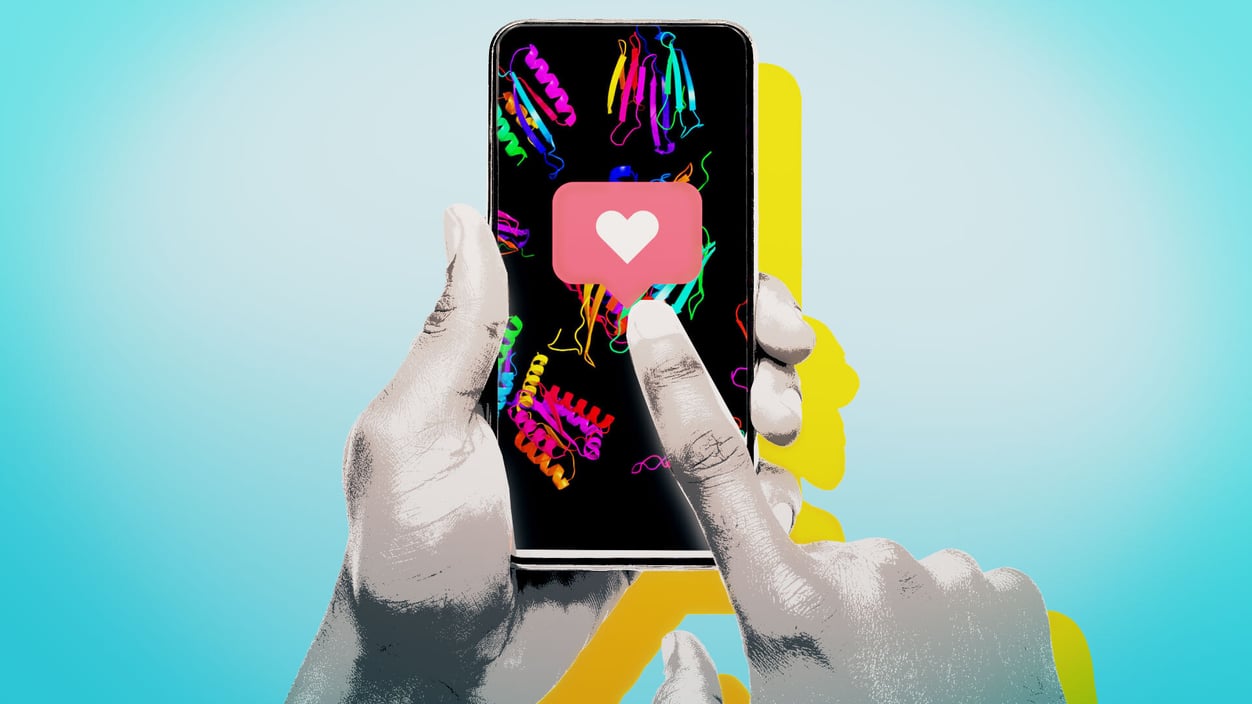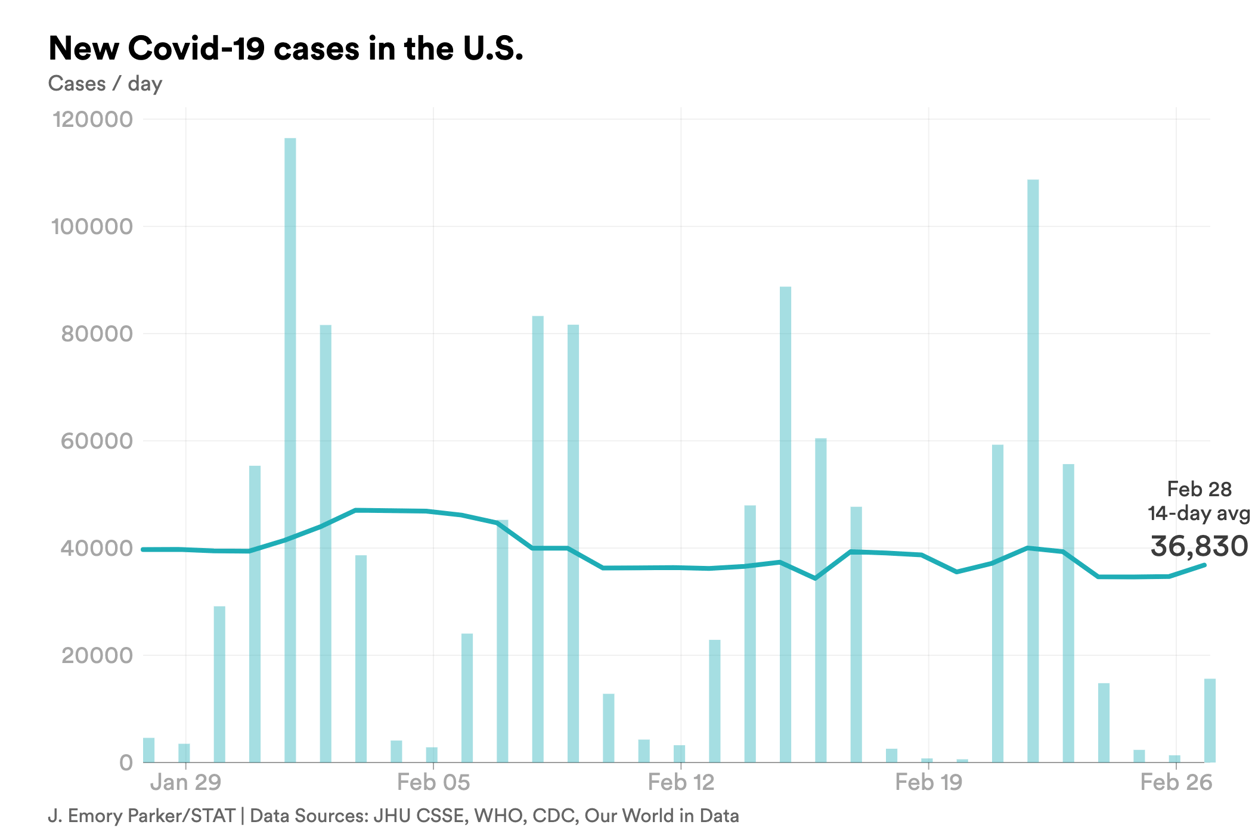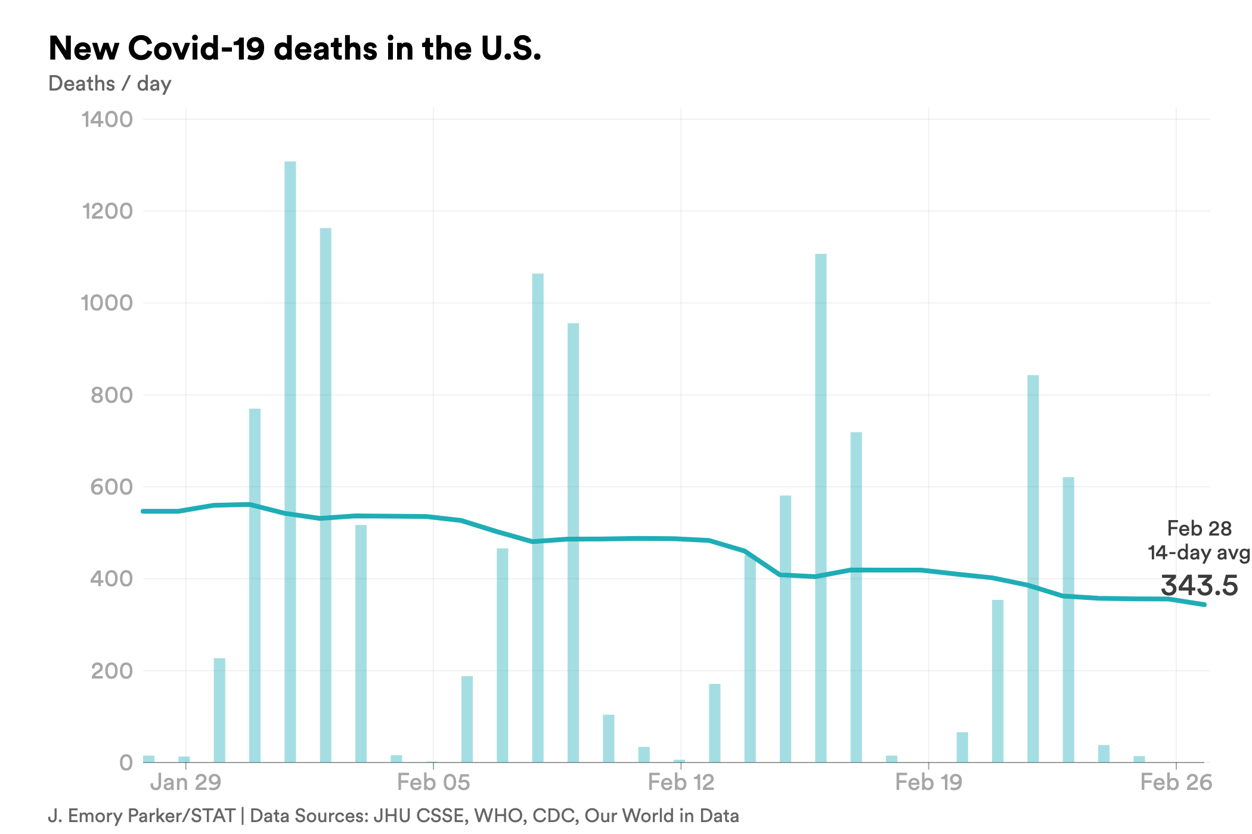Closer Look
Could Meta and TikTok become today's Bell Labs for biology?

Alex Hogan/STAT
Wait, new research on protein design powered by artificial intelligence was written by researchers at Salesforce? STAT's Brittany Trang tells us tech companies from Meta to TikTok's parent ByteDance have research programs on large language models — the ones behind text-generating AI tools like ChatGPT. "And what are proteins, if not run-on sentences, each word another amino acid?" she asks. Now I get it.
Some people in biology compare the research arms of tech companies today to the basic research moonshots of the AT&T Bell Labs and Xerox PARCs of the last century. Here's where protein design comes in: At their core, large language models are algorithms trained to repeatedly play a game of "fill-in-the-blank" in a sentence. With a little tweaking, these language models can use datasets of protein sequences. And new protein sequences could theoretically be used for anything from growing plastic-eating bacteria to new biologic drugs. Read more on the challenges and implications.
health
Covid-19 surveillance of essential workers added a burden but told them little
It sounds like the worst of both possible worlds: Having to submit to health checks but learning nothing from them. At the pandemic's peak, that was the reality for essential workers who had to go into factories or warehouses or food stores where they faced rampant tech-based surveillance, from overhead infrared thermometers to wearables that tracked how close they were to one another. But they gained little from these measures, rarely told when co-workers were sick because of privacy concerns. Having so little information made it difficult to know how best to protect themselves and their families.
Researchers from the organization Data & Society conducted an anonymous survey of 50 essential workers in four industries: meatpacking and food processing, warehousing, grocery retail, and manufacturing. They conclude Covid-19 surveillance on these mostly Black, Latino, and low-income workers compounded information gaps and added stress and extra labor for people already vulnerable to these factors before the pandemic. STAT's Ambar Castillo has more.
pandemic
Vaccination may mean milder and shorter long Covid, another study says
As long as long Covid has hampered people's lives with fatigue, brain fog, and more, there have been hints that vaccination may weaken the severity and shorten the duration of persistent symptoms. New research in BMJ Medicine bolsters that connection, based on a study that matched 455 pairs of people for such factors as age, sex, co-existing conditions, and long Covid severity. Four months after infection, twice as many vaccinated as unvaccinated patients said their long Covid symptoms had disappeared.
A systematic review of 16 observational studies from five countries, also in the journal, concluded that Covid vaccines might both protect against and help treat long Covid, with the caveat that more evidence is needed. "While these studies are encouraging, trials comparing vaccination with placebo in patients with long Covid … are required to definitively recommend for or against vaccination to improve symptoms of long Covid," a companion editorial says.
by the numbers




No comments